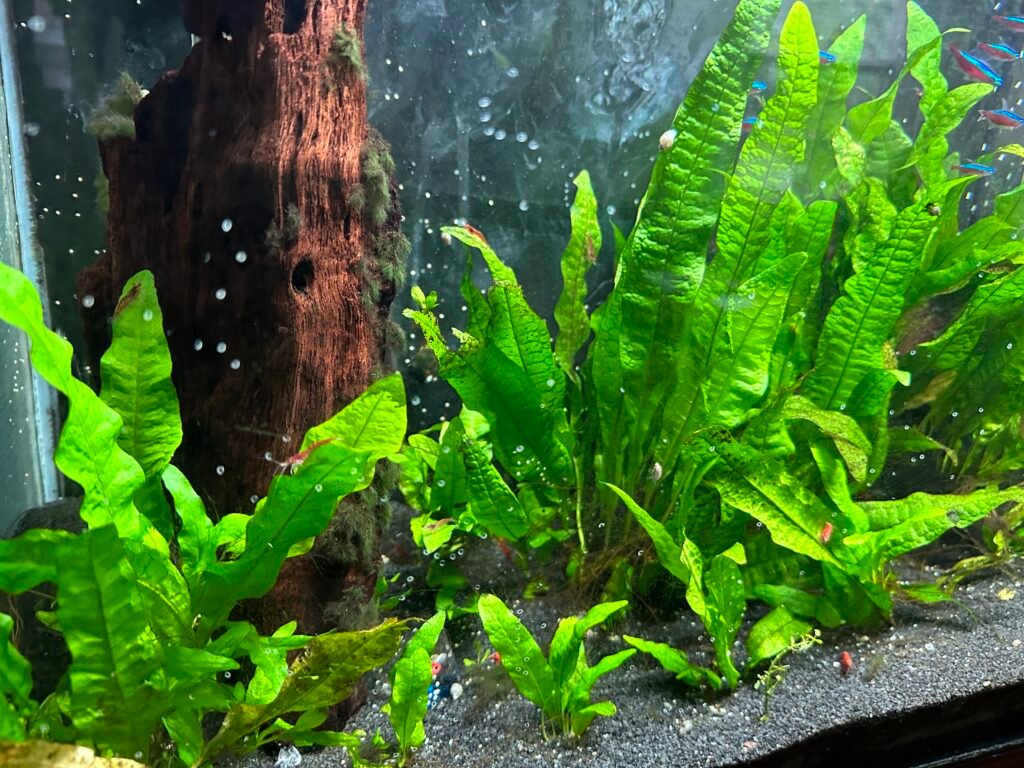The Benefits of a Planted Tank
Introduction to Planted Tanks For hobbyists who keep freshwater tropical fish, a planted tank can be a rewarding addition. Planted tanks include live plants, which not only enhance the aesthetic appeal of the aquarium but also offer several practical benefits for the fish and the overall tank environment. Natural Filtration and Oxygenation One of the primary benefits of a planted tank is the natural filtration and oxygenation provided by the plants. Live plants such as Java Fern, Anubias, and Amazon Sword absorb nitrates and other waste products, helping to maintain water quality. Additionally, through the process of photosynthesis, these plants release oxygen into the water, which is essential for the health and well-being of your fish. Creating a Healthy Habitat Live plants create a more natural and healthy habitat for freshwater tropical fish. They offer hiding spots and reduce stress for fish, making the environment more conducive to natural behaviors. Java Fern, for instance, is an easy-to-keep plant that requires minimal care, making it ideal for beginners. Anubias and Amazon Sword are also great choices for providing cover and creating a natural setup. Lighting and Supplementation For most planted tanks, standard aquarium lighting is sufficient to keep the plants healthy. However, advanced hobbyists may opt to use high-quality LED lighting to promote robust plant growth. Supplements such as carbon dioxide, magnesium, and potassium can also be added to enhance the vitality of the plants. While these are not necessary for beginners, they can elevate the quality of a planted tank for those looking to take their aquarium to the next level. Conclusion Incorporating live plants into your freshwater tropical fish tank offers numerous benefits, from improved water quality to a more natural and stress-free environment for your fish. Whether you choose easy-to-keep plants like Java Fern or more advanced options like Amazon Sword, a planted tank can transform your aquarium into a thriving ecosystem.


